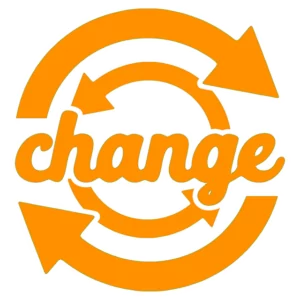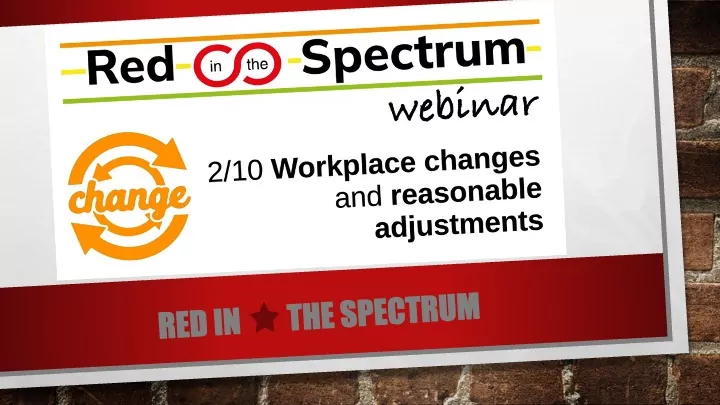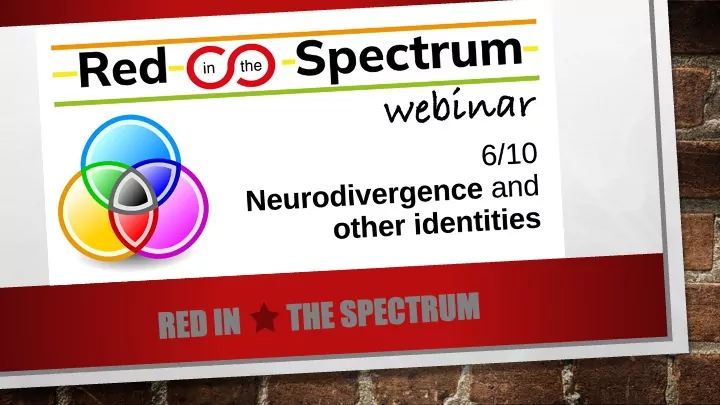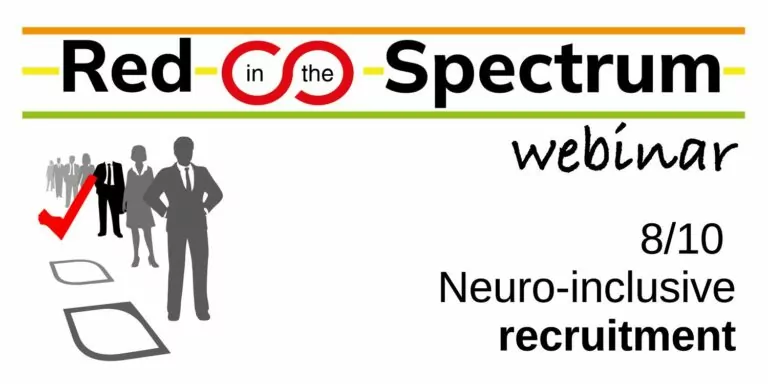Neurodiversity at Work: guides to rights and change – 10 webinars
In early 2024, Red in the Spectrum hosted a series of one-hour webinars on Sunday evenings about neurodiversity at work.
We will run these and similar webinars in the future. Red in the Spectrum will also deliver these webinars to organisations. Contact us to discuss this.
Detailed reports of the neurodiversity at work webinars are available to read on our blog – reports of particular sessions are linked to below.

The webinars equipped neurodivergent workers and job seekers, their allies, trade union representatives and employers, with the information and understanding they need in order to change their workplace to make it more neuro-inclusive.
The ten webinars each addressed a different aspect of neurodiversity at work: Discrimination and how to tackle it; Workplace changes and reasonable adjustments; To tell or not to tell?; Neurodivergent workers’ legal rights; Discipline, attendance, performance management; Neurodivergence and other identities; Working carers’ rights; Neuro-inclusive recruitment; Neurodiversity as a health and safety issue; There is power in a union.
Each ‘neurodiversity at work’ webinar included an illustrated talk, case studies, and plenty of opportunity for participants to ask questions and discuss issues.
Webinars were open to all. We did not want to prevent anyone from attending these neurodiversity at work webinars for financial reasons, so we asked for a donation rather than charging for a ticket. The suggested donation was £5 for people funding themselves, more if an organisation funded their place (eg. company or union branch).
All the neurodiversity at work webinars were hosted by Red in the Spectrum and facilitated by Janine Booth.
NEURODIVERSITY AT WORK: GUIDES TO RIGHTS AND CHANGE
Click these links to read more about each webinar and to book your place.
All webinars took place on a Sunday at 7pm, and lasted one hour.
- Discrimination and how to tackle it, Sunday 14 January, 7-8pm
- Workplace changes and reasonable adjustments, Sunday 21 January, 7-8pm
- To tell or not to tell?, Sunday 28 January, 7-8pm
- Neurodivergent workers’ legal rights, Sunday 4 February, 7-8pm
- Discipline, attendance, performance management, Sunday 11 February, 7-8pm
- Neurodivergence and other identities, Sunday 18 February, 7-8pm
- Working carers’ rights, Sunday 25 February, 7-8pm
- Neuro-inclusive recruitment, Sunday 3 March, 7-8pm
- Neurodiversity as a health and safety issue, Sunday 10 March, 7-8pm
- There is power in a union, Sunday 17 March, 7-8pm
1. Discrimination and how to tackle it

- What does discrimination against neurodivergent workers look like?
- What barriers stand in the way of equality and inclusion at work?
- Once we have identified discrimination, how do we tackle it?
2. Workplace changes and reasonable adjustments

- What sort of adjustments could help? And how do you go about arranging them?
But reasonable adjustments for individuals are Plan B. Plan A for neurodiversity at work is an accessible and inclusive workplace. For example, it is better to make all workplace communication dyslexia-friendly rather than producing dyslexia-friendly special copies just for an individual dyslexic worker.
- What changes would make your workplace more accessible to and inclusive of neurodivergent workers?
- .And how can you get your employer to make those changes?
3. To tell or not to tell?
- If you are – or think you are – neurodivergent, is it a good idea to tell your boss?
- What does the law say?
- What are the pros of telling? And what are the cons?
- Who can help you make your decision?
- If you decide to tell, what is the best way to do it?
4. Neurodivergent workers’ legal rights
- What legal rights do neurodivergent workers have?
- What sort of actions by employers constitute unlawful discrimination?
- Are neurodivergent workers considered disabled under the law?
- What are the limits of the law?
- How do you take legal action if you think you are being discriminated against?
5. Discipline, attendance, performance management
- How do neurodivergent workers find themselves being disciplined at work?
- Are employers’ disciplinary procedures fair to neurodivergent workers?
- Why are people disciplined for taking time off sick?
- Are one-size-fits-all performance management policies fair to neurodivergent workers?
- If you are a neurodivergent worker, what can you do if you are under threat under these procedures?
- If you are a trade union rep, how can you most effectively represent neurodivergent workers under these procedures?
6. Neurodivergence and other identities
Despite the stereotype of neurodivergent workers being white, male and nerdy, we come from all backgrounds and have a variety of intersecting identities.
- Why are neurodivergent women overlooked?
- What are the experiences of Black neurodivergent workers?
- Is it true that neurodivergent people are more likely to be LGBT+?
- How can we tackle intersecting discrimination?
7. Working carers’ rights
Embracking neurodiversity at work also means meeting the needs of those workers who care for neurodivergent dependants.
- What are their rights?
- What is flexible working?
- What is parental leave?
- What rights do you have if there is an emergency with your dependant?
- What can employers do to improve on the legal minimum?
8. Neuro-inclusive recruitment
- Why is neuro-inclusive recruitment essential to neurodiversity at work?
- Why do neurodivergent people find it difficult to get jobs? And to get promoted?
- Do we start behind the starting line? Do job adverts exclude us?
- And what about interviews, exams and psychometric tests? Are they fair?
- What adjustments can neurodivergent applicants ask for?
- How can employers make recruitment and promotion more fair?
9. Neurodiversity as a health and safety issue

- But what has this got to do with neurodiversity at work? Is it a health and safety issue?
If health and safety training and information is not provided in a way that makes sense to people who think differently, then danger might ensue.
- What can we do about this?
10. There is power in a union
Many employers are paying more attention to neurodiversity at work. But neurodivergent workers still experience discrimination, exclusion and unfair discipline.
During this series of online workshops, we have discussed lots of issues about. neurodiversity at work and lots of ideas for workplace change.
- But how do we make that change happen?
Where workers are unionised, they have better pay and conditions, and safer and more equal workplaces.
- How can strong trade union organisation win more neuro-inclusive workplaces?
- How can unions involve and support neurodivergent workers?
- And can unions make themselves more inclusive and effective?
You can read more on the subject of ‘Is there power in a union for autistic workers’ in this article by Janine.
Increase your knowledge about neurodiversity at work, and join the movement for more neuro-inclusive workplaces!
If you have any questions about the neurodiversity at work webinars, please email [email protected]














